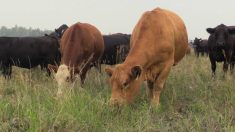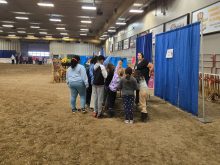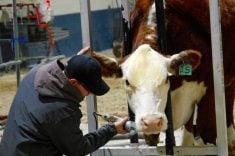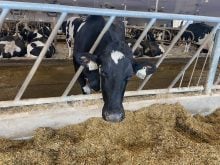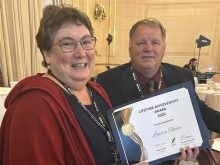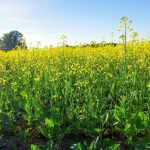Manitoba author Anna Hunter is back on her quest to educate Canadians about their nation’s wool industry.
Hunter is fresh off the launch of her newest book. The True Cost of Wool, released June 10, examines the environmental, social and economic aspects of the wool supply chain in Canada.
WHY IT MATTERS: Wool in Canada has a large-scale processing capacity problem, something the Canadian industry has been looking to address.
Read Also
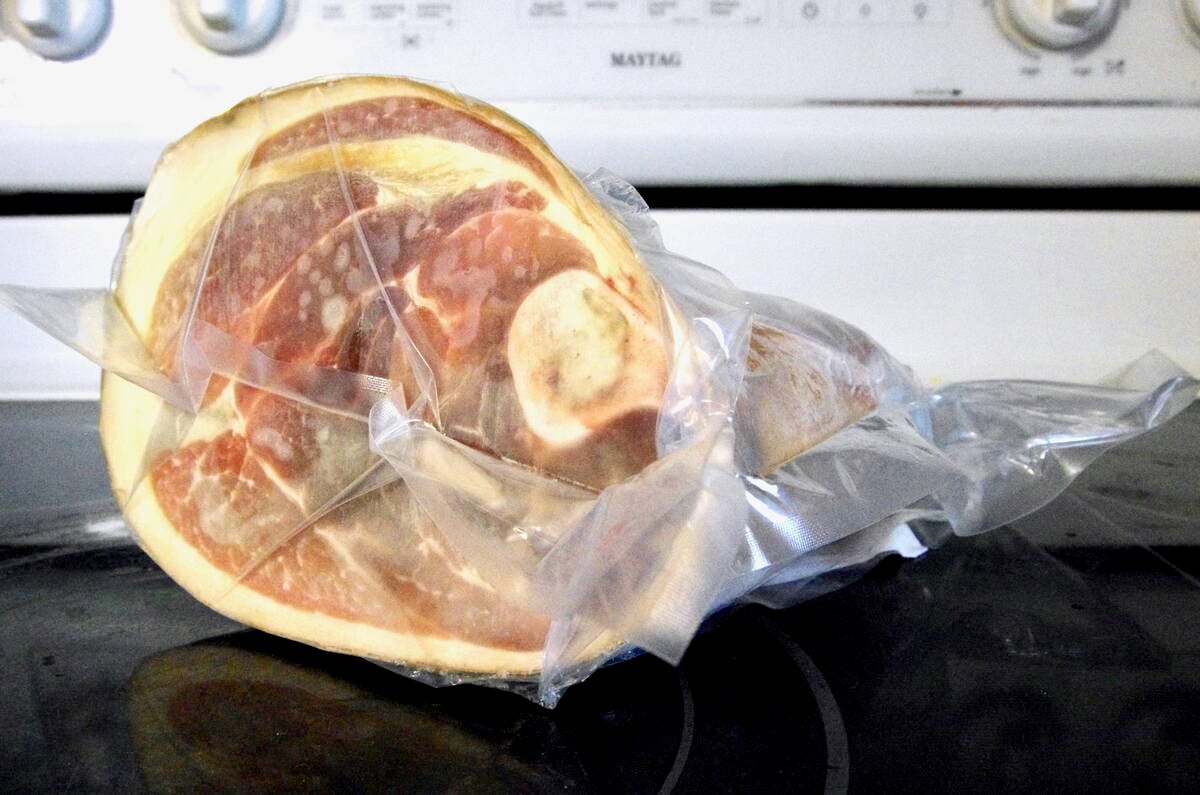
MANITOBA AG DAYS: Unmoved China tariffs worrying for Manitoba pork
Manitoba pork producers and Agriculture Minister Ron Kostyshyn have both noted lack of progress on Chinese tariffs on pork.
Canada has a reliance on imported wool, while domestic wool processing infrastructure has declined, the book notes.
Hunter, who operates a sheep farm and wool mill in eastern Manitoba, used data analysis and personal accounts to trace wool’s journey from farm to finished product. The book examines how the loss of Canada’s wool processing capabilities has affected rural economies, environmental sustainability and the textile industry.
Hunter’s first book, Sheep, Shepherd and Land, was published in 2023 and tells the stories of wool-focused sheep farmers.
Hunter describes her approach to farming, creating and writing as grassroots activism.
“There are other organizations that are starting to do stuff about wool in Canada, and I say that they’re sort of like the wool advocacy in fashion boutiques, and we’re really the boots on the ground.”
From yarn shop owner to wool advocate
Hunter’s path to wool advocacy began with her pastime as a knitter. She opened up a yarn shop in Vancouver in 2009.
“My goal for that was to have it be a community-based yarn shop … a 100-mile yarn shop,” she said. “I wanted to sell wool that had been grown within 100 miles of the lower mainland in Vancouver, which is where I lived.”
But sourcing local fibre proved harder than anticipated.

The experience immersed Hunter in the details, nuances and gaps of the wool supply chain, knowledge that grew after she and her husband moved to Manitoba to start their own farm.
In 2018, the couple opened the door to their wool mill, which they hoped would help fill a service gap for local farmers lacking in local processing options.
“We don’t have the infrastructure to manufacture the wool in Canada, so it’s not worth it for so many farmers to do anything with their wool,” she said.
For many sheep producers in the province, wool is less income than it is cost recovery for shearing, a necessary animal health practice.
According to the International Wool Textile Organisation, Canada’s wool sector is classified as small, “currently building up its medium-scale production.”
The Canadian Co-operative Wool Growers takes in about two-thirds of the wool sheared by Canadian sheep farmers, the international organization noted.
The co-operative’s website notes 41 locations for farmers to drop off their wool. It grades and markets about three million pounds of raw wool a year, most of which comes from Quebec, Ontario and Alberta.
Timely release amidst trade tension
The book explores the global wool supply chain and proposes alternatives focused on local production and community-based manufacturing. It calls for more investment in domestic textile production.
The book’s release was accelerated from its original September timeline due to trade uncertainty within North America.
“In February, when this tariff stuff happened through the United States, I think in most industries, people were taking to community groups or the internet and saying, ‘Where’s our Canadian food? Where’s our Canadian products?’” Hunter said. “People are hungry for traceable supply chain, especially one that includes Canadian-grown and manufactured products.”

Hunter also sees wool production as part of a broader agricultural conversation. While it does face challenges with infrastructure, she argued synthetic fibres are still the biggest threat to the wool sector.
“One of the things that I try and talk about in farming spaces is that our clothing is agriculture too, or at least it should be. And we’ve really moved away from the concept or the idea of textile agriculture,” she said.
Many people often overlook the fact that what they choose to wear is connected to land and labour, she said. Her book is about the true costs of the wool and textile industry.
“It’s showing Canadians that a different way is possible. One that supports regenerative agriculture, fair labour, and a resilient, community-based manufacturing system.”




